Eric Foster was determined to find a way to get much-needed capital to entrepreneurs of color in his community. A bustling businessperson himself, Foster used his W.K. Kellogg Foundation Community Leadership Network (WKKF CLN) fellowship project as the incubator for an innovative lending program. In the process, he also found a dynamic partner and the social capital to get it off the ground.
“This was the first time that I had learned tools where I could introduce racial equity into financial services.”
Eric Foster Tweet
Launched in 2018, Rende Progress Capital (RPC) is the first racial equity-oriented emerging community development financial institution (CDFI) in the U.S. Co-founded and led by Eric Foster, RPC provides loans and investments to entrepreneurs in Michigan who face hurdles to accessing conventional loan capital due to systemic racism and racial bias.
“People of color have higher loan denial rates than their White peers when it comes to conventional loans,” says Foster. According to national research by the Small Business Loan Administration Office of Advocacy, entrepreneurs of color are approximately three times more likely to be denied a loan than White entrepreneurs.


RPC strategically invests to shrink the racial wealth gap. According to the Federal Reserve in 2016, median wealth for White households was ($171,000) almost 10 times higher than median wealth for Black households ($17,600). Most studies calculate wealth by adding up total assets (e.g., cash, investments, home, etc.) then subtracting liabilities (e.g., mortgage, student loans, credit card debt, etc.), and the results equal net worth.
Recent studies show that 37% of Black families and 33% of Latinx families have zero or negative net worth – or wealth – compared to just 15.5% of White families.
Proportion of all U.S. households with zero or “negative” wealth (%)
Note: Negative wealth refers to families’ debts exceed the value of their assets.
Source: Institute for Policy Studies report, “Dreams Deferred,” on the racial wealth divide in the United States.
RPC specifically works with what they call “excluded entrepreneurs”: Black, Latinx, Native American, Asian American and immigrant entrepreneurs who need a boost to grow their businesses. Foster says that many people of color-owned businesses are using personal money or money from family members to launch or sustain their businesses. Because of bias in lending, they are excluded from the mainstream market and often more susceptible to predatory loans with soaring interest levels.
Partnering with foundations (the W.K. Kellogg Foundation and Wege Foundation), banks (Flagstar Bank and United Bank), government and corporations to shore up capital for the program, RPC provides affordable loans in amounts from $10,000 to $500,000. In Foster’s hometown of Grand Rapids, Michigan, RPC is already providing loans to emerging and established businesses owned by people of color and women.
RPC’s first loan customers included a non-emergency medical transportation company, a longstanding hair salon, a Latinx community radio station and an online specialty shoe store. Foster says these are the first traditional loans the entrepreneurs have ever received, despite their creditworthiness and proven business models. RPC is committed to changing that in underwriting practices. To accelerate change and systemize racial equity into loan underwriting, RPC created its own proprietary tool, Financing Approval through Racial Equity (FAREsm).
Foster believes a loan has ripple effects beyond the initial capital investment.
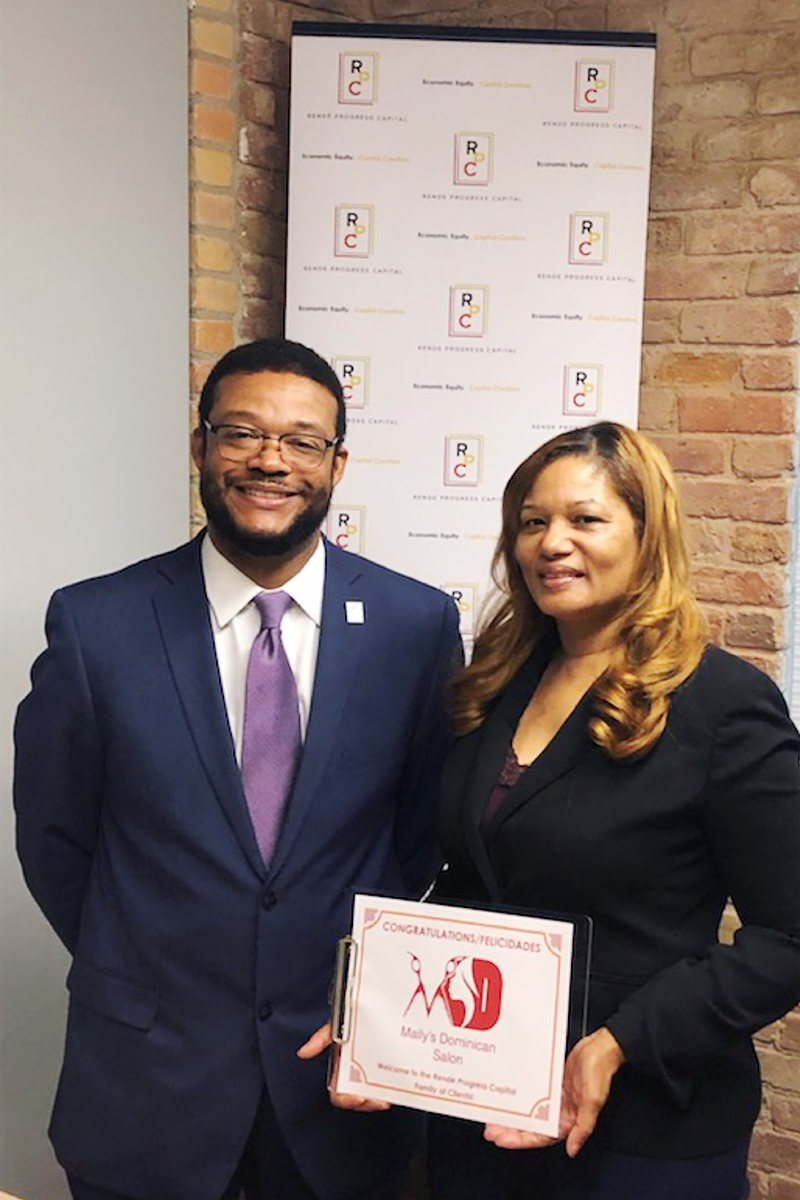
“There’s a growing number of these excluded entrepreneurs with children,” says Foster. RPC uses lending measures to track and target customers in their portfolio with children at or below the federal poverty level. “Part of reducing or eliminating the racial wealth gap is passing on intergenerational wealth in the form of a business.”
Foster is not shy to acknowledge the cast of characters who helped bring Rende Progress Capital to life. He teamed up with a fellow WKKF CLN classmate, Cuong “CQ” Huynh, as they both aspired to empower communities of color through the financial services industry. Huynh co-founded RPC with Foster and now serves as managing director of investments.
RPC has many WKKF CLN connections: Meredith Freeman, a Michigan WKKF CLN fellow, serves on the board of directors; Donna Murray Brown, a WKKF CLN coach, serves on the loan committee; and Dennis West, WKKF CLN coach, leads Northern Initiatives, a CDFI lending partner of RPC.
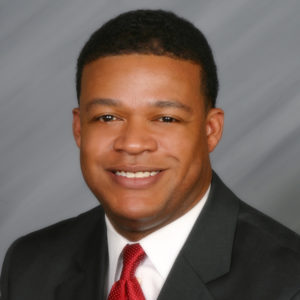
Eric Foster
Co-founder, Chair and Managing Director for Investments of Rende Progress Capital

Cuong Q. Huynh, JD, MPP
Co-founder and Managing Director for Investments of Rende Progress Capital
Huynh believes RPC’s racial equity model unearths market opportunities that traditional lenders overlook.
“When we receive a loan application, we look at the entrepreneur and given the issues of unconscious bias, discrimination and inequities, we look at them holistically and with empathy, encouraging and helping them to grow their businesses,” says Huynh.
Foster emphasizes that RPC is diligent to make sure its loan customers are financially solvent, but factors in the hurdles that they face.
“Systems far too often give an ‘attaboy’ to the resiliency of people of color. But they don’t do things to make that resiliency be rewarded, give them a respite and make it work for them. We do that and that’s what I’m most proud of in our work.”
Eric Foster Tweet
More WKKF CLN Stories:
Learn more about the WKKF Community Leadership Network, explore the program experience and meet the Class Two fellows at wkkfcln.org.
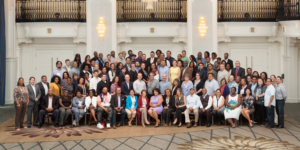
Courageous leaders advance racial equity
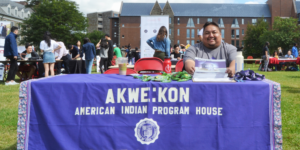
Shaping the next generation of Indigenous leaders

Cash with no strings attached: Changing the narrative of Black mothers and the social safety net

Building One Albuquerque, from inside out

Self-transformation reshapes the food landscape for New Orleans children


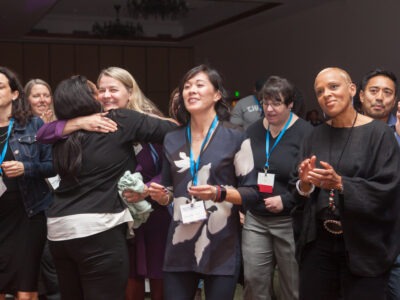
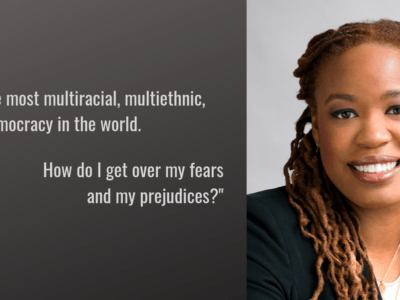


Comments